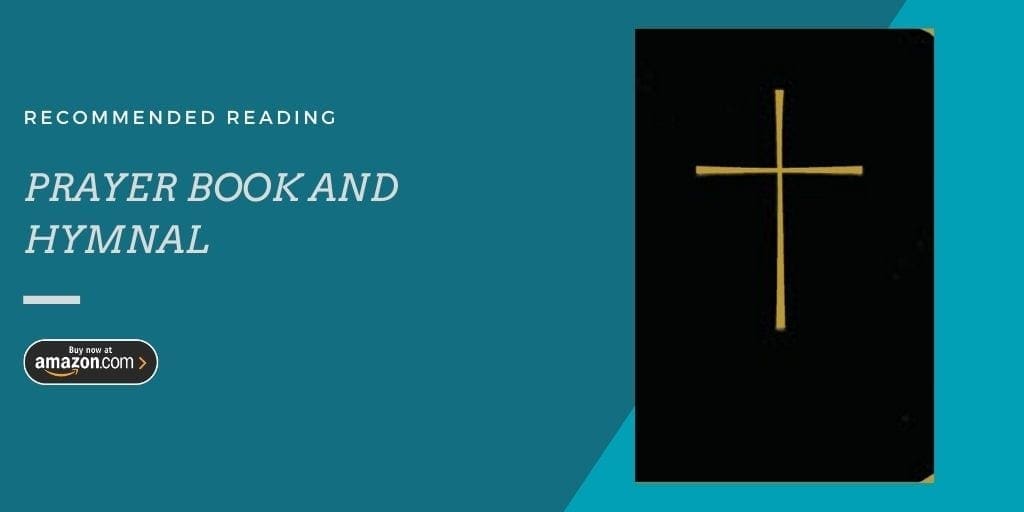In the Catechism (the Outline of the Faith) in the Book of Common Prayer, the fourth section of questions is about The Ten Commandments. This follows the first section of the Catechism that explores The Old Covenant.
It seems like when we think about the Ten Commandments, we think of a list of rules that we’re supposed to follow. Some may look at them as the guide for how to be a good person, which then gets us into Heaven (it’s actually not about that, but that’s another conversation). But when you dig into what’s going on in these several verses, you start to see something wonderful happening. It points us to Hope, and gives us a model for how to get along in this world.
So let’s take a look at them! You can find them in Exodus 20:1–17 and Deuteronomy 5:6–21.
And in the spirit of the Catechism, we’re not just looking at the questions and relying on an absolute answer. The Catechism is meant to be the start of a conversation. So as I share the questions and answers from this section, I’m also sharing some of my own thoughts and ideas that have come up in recent conversations.
What are the Ten Commandments?
The Ten Commandments are the laws given to Moses and the people of Israel.
This one seems simple, but it’s a fun one to play around with. On the surface it’s pretty straight forward. Until you wrestle with it and ask other questions about what certain parts of this statement is saying. First, I like to look at the history that’s going on here. When were these laws given? It was while they were in the wilderness after their exodus from Egypt. The Israelite people were there for hundreds of years, most of that time as slaves. While they maintained a “family” identity, they were immersed for several generations in the Egyptian culture. So coming out of that, God needed to help them establish a way of life that was different than that of the Egyptian culture they were familiar with. So these laws helped to distinguish them from the rest of the world. They were to live different as God’s chosen people, just as we are to live different too.
And the story of how they got these laws is pretty crazy too. Moses goes up on the mountain, the people get tired of waiting, so they make themselves a golden cow to worship (just like what would have been normal back in Egypt). Then, when Moses comes down with the tablets of the commandments, he sees what’s happened, and smashes the tablets on the ground in anger and frustration. So then he has to go back up the mountain to get a new set of the tablets. God is actively guiding them into how to be different, and the people continue to show how hard it is for them to shake the ways of the world!
Another question I ponder with this one is this… Were the Ten Commandments only rules for the Israelites, or where they universal truths for the whole world? We see in the Scriptures and in this response in the Catechism that they were given to Moses and the Israelite people. But they reflect more about God, His character, and His principles for right living than they do a set of limited rules for one group. But they were given to these people to set them apart and shows God’s way of living to the rest of the world.
What do we learn from these commandments?
We learn two things: our duty to God, and our duty to our neighbors.
This one does feel a little more straightforward. But two tablets cover two primary duties. And it fits with what we see Jesus responding with when asked by the religious leaders of His day about which was the greatest commandment. And His response was His Summary of the Law…
“The first is, ‘Hear, O Israel: the Lord our God, the Lord is one; you shall love the Lord your God with all your heart, and with all your soul, and with all your mind, and with all your strength.’ The second is this, ‘You shall love your neighbor as yourself.’ There is no other commandment greater than these.” — Mark 12:29-31
Jesus’ response aligned with these two duties we get on these two tablets of laws. So when Jesus brought that out, it wasn’t a new thing. It’s the way it’s always been.
What is our duty to God?
Our duty is to believe and trust in God;
I To love and obey God and to bring others to know him;
II To put nothing in the place of God;
III To show God respect in thought, word, and deed;
IV And to set aside regular times for worship, prayer, and the study of God’s ways.
There are a few things that stand out in the duties we get from these first four commandments. And one of the first things I notice is that in #1, we are not only to love and obey, but also to bring others to know Him. There’s a natural evangelistic nature to this relationship. But when I think about that, it makes a lot of sense. In my life, I get married because I love my wife. And since that relationship has developed, I want to bring her along so that other people in my life get to experience us together. I want people to know her and the role she plays in my life. So I’m not going to say I love her, and then keep her locked away in the house where no one else can ever interact with her. It’s the same with my kids. I love them, and therefore I want people to know them and see how awesome they are. And it’s the same with God. When we establish and develop that relationship, we should want other people to experience Him too!
The other big things that I see in here are the echoes I see in this in things like the liturgy at church. The idea of showing God respect in thought, word, and deed starts to show up in the confession we pray every week in the Episcopal/Anglican liturgy. And the setting side of time for worship, prayer, and study is something that we see in the commitments in our Baptismal Covenant. And I could certainly dig deeper on this, but I think it’s amazing how the liturgy has been designed to bring us to a place of worship that honors the way God tells us that we can/should relate to Him.
What is our duty to our neighbors?
Our duty to our neighbors is to love them as ourselves, and to do to other people as we wish them to do to us;
V To love, honor, and help our parents and family; to honor those in authority, and to meet their just demands;
VI To show respect for the life God has given us; to work and pray for peace; to bear no malice, prejudice, or hatred in our hearts; and to be kind to all the creatures of God;
VII To use our bodily desires as God intended;
VIII To be honest and fair in our dealings; to seek justice, freedom, and the necessities of life for all people; and to use our talents and possessions as ones who must answer for them to God;
IX To speak the truth, and not to mislead others by our silence;
X To resist temptations to envy, greed, and jealousy; to rejoice in other people’s gifts and graces; and to do our duty for the love of God, who has called us into fellowship with him.
There’s certainly a lot that we can unpack in this one. So instead of breaking down each of the commandments, I like to look at overall trends and themes in this group.
The quick answer is that we’re supposed to treat people well. But it goes a lot deeper than that. The Baptismal Covenant has these two commitments that we make that seem relevant here:
- Will you seek and serve Christ in all persons, loving your neighbor as yourself? I will, with God’s help.
- Will you strive for justice and peace among all people, and respect the dignity of every human being? I will, with God’s help.
And this is exactly what this group of Commandments is about. It’s about loving and serving people. It’s about making things right (justice). It’s about striving for peace. It’s about treating people with dignity and respect. This is far more than be nice and treat people good (as long as they treat us good first).
This second group of Commandments is about making the well-being of other people our mission.
And it’s not just about the things that we do. We’re also accountable for the things we don’t do. Part of being the kind of person we’re called to be means that when we see something wrong happening, we don’t just turn a blind eye and do nothing.
We have a responsibility to care for one another. And that makes a lot of sense. I know that I need other people in my life. And I know that I have a positive impact on some of the people around me. The truth is that we need each other. And it works best when we know what this kind of relationship should look like.
What is the purpose of the Ten Commandments?
The Ten Commandments were given to define our relationship with God and our neighbors.
There’s not a lot more to say here than what’s already been said about each of the two groups of Commandments separately. But I will say this… It’s helpful (at least for me) to review these guidelines for living to help me see where I’m at with all of this. I know that I’m not always perfect. And knowing these and being reminded regularly serves as a great guide for Christian living.
That’s one of the things that I love about the liturgies (of the Episcopal Church). These things are built into so many elements of what we pray and how we worship. And it’s not in the form of condemnation. But at every turn, there’s something that points us back to how we should live that finds its roots in these Commandments.
Since we do not fully obey them, are they useful at all?
Since we do not fully obey them, we see more clearly our sin and our need for redemption.
I don’t know about you, but I cannot live up to these standards. I can most of them right most of the time. But then there’s that time when somebody does something that just ticks me off, and then I don’t think nice thoughts about them. Boom… sin. And I could probably point out times where I’ve messed up in every once of these 10 Commandments at some level. Sometimes, it’s just because I’m being self-centered and ignoring the needs of someone else over my own “peace and comfort.”
And that’s sin. We all fall short. This is an impossible standard.
So no matter how good I like to think I can be, I still fall short. And that’s why I need Jesus.
It seems that this is one of the purposes of the Ten Commandments, that we recognize our need for a Savior. The good news is that we have a Savior, and he’s the only One who has ever lived up to these standards. The Scriptures tell us that He was sinless. So He’s earned the right to be able to stand up for us in our sin. And it makes Him a pretty good example to try to follow as we strive to live up to these standards.
Nonetheless, thank you God for the redemption we receive when we fall short.
Final Thoughts on the Ten Commandments
What I love most about all of this is that it’s usually easy to just buss through the Ten Commandments as a list of rules that we’re supposed to follow. But when I study (and discuss) them in this way, I find so much Life in there! These aren’t just mere rules that gives God a reason to smite us when we don’t follow them. And it’s not just a guide on how to be a “good person.” Rather, these are the words of Life from our Lord and Savior!
I’ll leave this one with a little bit of Psalm 119 (which makes a lot more sense now):
Blessed are those whose ways are blameless, who walk according to the law of the LORD.
Blessed are those who keep his statutes and seek him with all their heart—
they do no wrong but follow his ways.
You have laid down precepts that are to be fully obeyed.
Oh, that my ways were steadfast in obeying your decrees!
Then I would not be put to shame when I consider all your commands.
I will praise you with an upright heart as I learn your righteous laws.
I will obey your decrees; do not utterly forsake me.v. 1-8 (NIV)





0 Comments